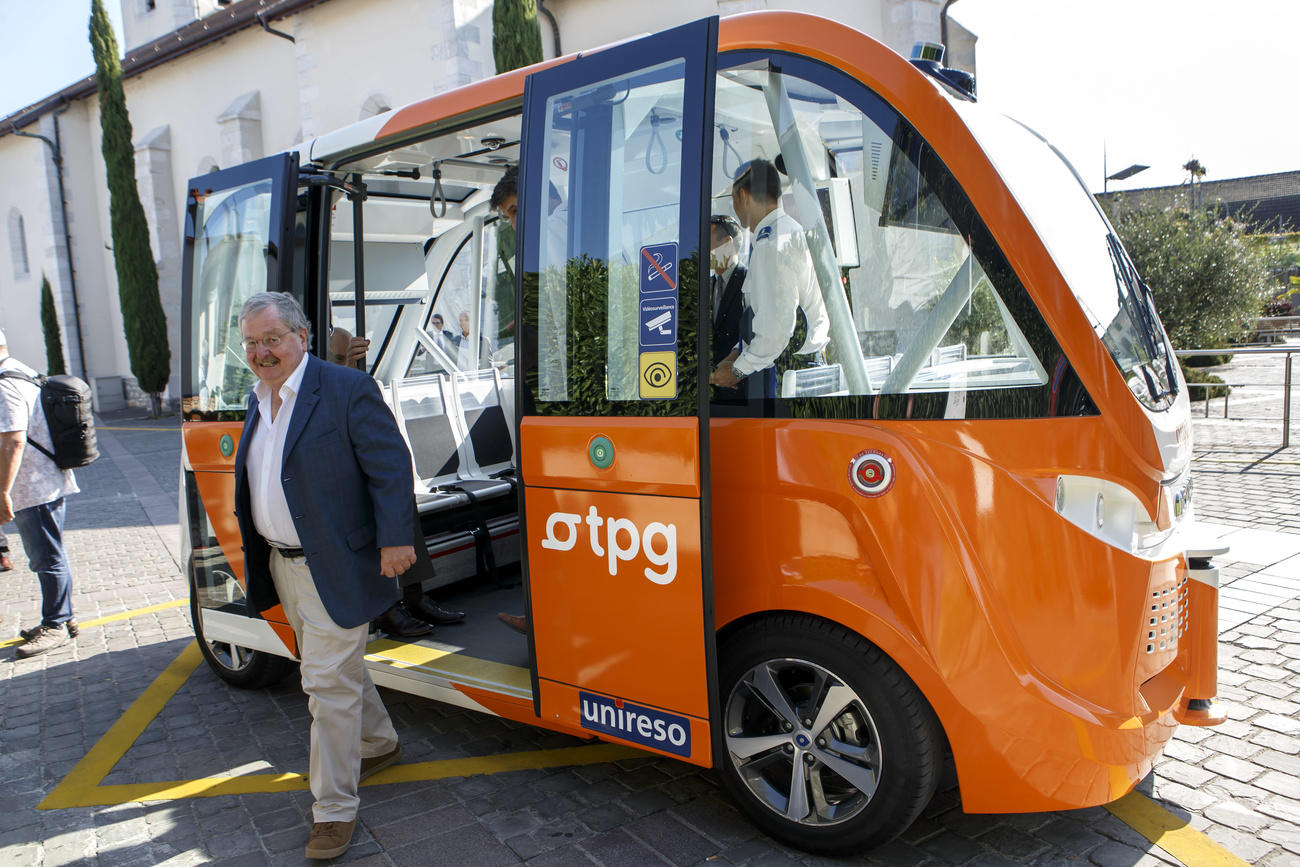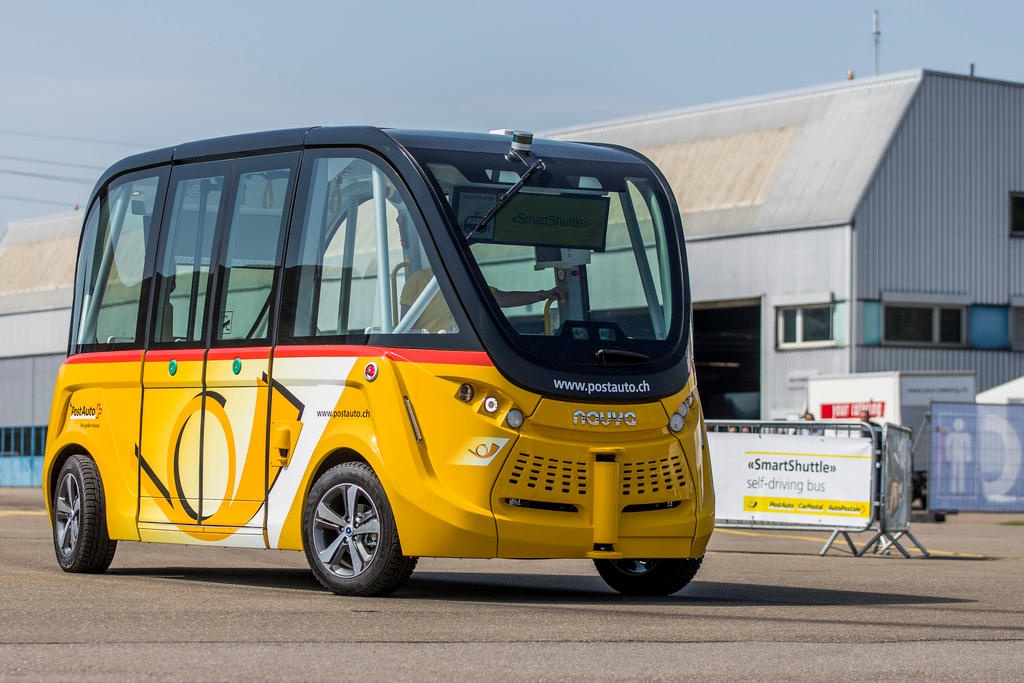
Driverless vehicles may lead to more congestion in cities

The introduction of autonomous taxis and privately-owned driverless vehicles on Swiss streets may result in more congestion if they are not correctly regulated, according to a study by ETH Zurich, financed by the Federal Roads Office.
The study, which simulated how Zurich’s traffic would cope with the introduction of driverless taxis and private vehicles over the next 20 years, had surprising results.
“Offering a ridesharing service would not decrease the number of private vehicles, and automated transport might even increase the number of kilometres driven,” ETH Zurich said in a statement on FridayExternal link.
Their conclusions contradict previous assumptions about the impact of autonomous vehicles. In 2014, a study in Singapore concluded that with the introduction of automated taxis, total demand for mobility could be covered by one-third of current vehicles. A similar study in Austin, Texas, predicted that autonomous taxis could lead to a reduction in the number of vehicles by up to 90%. These studies have helped influence the strategies of ridesharing companies such as Uber and Lyft.
Switzerland has been testingExternal link several different kind of driverless vehicles on its roads. An autonomous passenger car was tested in Zurich in 2015, followed by a delivery robot in Bern a year later. These tests have now been completed.
In Sion, a trial using an autonomous Swiss Post bus in the town centre, which began in the summer of 2016, is still in progress. Other autonomous bus shuttles are being trialed in Marly, canton Fribourg, in Neuhausen am Rheinfall, near Schaffhausen, and in Meyrin, Geneva.
Too attractive
In their study, under one scenario, the ETH Zurich researchers found that the introduction of automated vehicles could result in more kilometres being driven.
“The combination of high flexibility and the chance to make good use of time spent in the vehicle makes this form of mobility very attractive – especially when all family members can use the vehicle,” said Kay Axhausen, professor at ETH Zurich’s Institute for Transport Planning and Systems.
A decline in individual traffic can only be expected if autonomous vehicles are reserved for public transport and taxis, and not for private cars, the authors concluded.
In this scenario, they could have a considerable impact. In their simulation, the share of motorized personal traffic fell from 44% to 29% of all traffic, at the same time the share of automated public transport – driverless trains, buses and taxis – rose to over 60%.
+ Read more about Sion’s driverless buses
Automating buses would halve the cost of a bus ride, the study found. Buses would remain attractive but “the strong appeal of private automated vehicles could lure users away from public transport”.
Summing up, the researchers urge the authorities to properly regulate the introduction of self-driving vehicles in Switzerland.
“The possession of private vehicles will only be reduced if autonomous cars cannot be acquired by private individuals,” Axhausen said.
The first driverless taxi services have already been introduced in Las Vegas and Phoenix, United States, in a bid to reduce traffic, lower emissions and reduce costs.

More
Are the Swiss prepared for driverless cars?

In compliance with the JTI standards
More: SWI swissinfo.ch certified by the Journalism Trust Initiative


























You can find an overview of ongoing debates with our journalists here . Please join us!
If you want to start a conversation about a topic raised in this article or want to report factual errors, email us at english@swissinfo.ch.